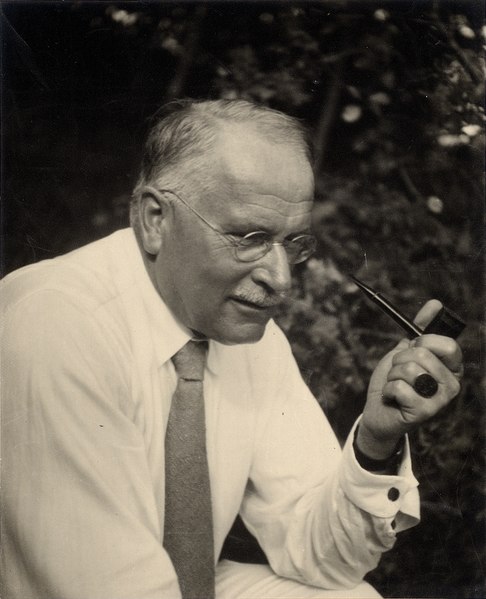Analytical psychology is a term coined by Carl Jung, a Swiss psychiatrist, to describe research into his new "empirical science" of the psyche. It was designed to distinguish it from Freud's psychoanalytic theories as their seven-year collaboration on psychoanalysis was drawing to an end between 1912 and 1913. The evolution of his science is contained in his monumental opus, the Collected Works, written over sixty years of his lifetime.
An 1890 etching of Burghölzli hospital where Carl Jung began his career
Still talking, Jung with psychoanalytic colleagues. Front row, Sigmund Freud, G. Stanley Hall, Carl Jung. Back row, Abraham Brill, Ernest Jones, Sándor Ferenczi. 1909 in front of Clark University.
Psychology of the Unconscious (1916), the book which precipitated Jung's break with Freud
American philosopher of pragmatism William James greatly influenced C. G. Jung's thinking.
Carl Gustav Jung was a Swiss psychiatrist and psychoanalyst who founded analytical psychology. He was a prolific author, illustrator, and correspondent, and a complex and controversial character, perhaps best known through his "autobiography" Memories, Dreams, Reflections.
Jung circa 1935
The clergy house in Kleinhüningen, Basel, where Jung grew up
Young Jung, early 1880s
The University of Basel, where Jung studied between 1895 and 1900








